

Samoa Map
Samoa facts and history
in brief
v v v
List of photo
pages in my Samoa 2005 series.
Samoa (aka Western Samoa)
Apia
Samoa
Samoa
buses
Savaii
v
American Samoa (aka Pago
Pago)
American
Samoa
American Samoa buses
Fagatogo
Pago Pago
v v v
The Independent State of Samoa (conventional long
form) or Samoa (conventional short form) is a country
comprising a group of islands in the South Pacific Ocean.
Previous names are German Samoa from 1900 to 1914 and
Western Samoa from 1914 to 1997.
Facts at a glance
Official title: Malo Sa'oloto Tuto'atasi o Samoa,
(In Samoan), Independent State of Samoa (In English).
National motto: Faavae i le Atua Samoa (Samoa
is founded on God)
Official languages: Samoan, English
Capital: Apia, (13°35' S 172°20' W)
Area: 2944 km² 0.3% water; Ranked 165th
Population: 177,714, (Jul 2004 Est.); Density
60/km² Ranked 174th
Independence: January 1, 1962; (From New Zealand)
Currency: Tala (WST)
Time zone: UTC -11
National anthem: The Banner of Freedom
Internet TLD: .ws
Calling Code: 685
History
Migrants from Southeast Asia arrived in the Samoan islands
more than 2000 years ago and from there settled the
rest of Polynesia further to the east.
Contact with Europeans began in the early 1700s but
did not intensify until the arrival of English missionaries
and traders in the 1830s.
At the turn of the 20th century, the Samoan islands
were split into two sections.
The eastern islands became territories of the United
States in 1904 and today are known as American Samoa.
The western islands became known as German Samoa, then
Western Samoa after passing from German control to New
Zealand in 1914.
In 1962 Western Samoa became the first Pacific Island
country to regain its independence.
In July 1997, the Constitution was amended to change
the country's name from Western Samoa to Samoa.
Samoa had been known simply as Samoa in the United Nations
since joining the organization in 1976.
Geography
Samoa is located east of the international dateline
and south of the equator, about halfway between Hawaii
and New Zealand in the Polynesian region of the South
Pacific.
The Samoas are of volcanic origin and the total land
area is 2934 sq km, consisting of the two large islands
of Upolu and Savai'i which account for 96% of the total
land area, and seven small islets: Manono, Apolima,
Nuutele, Nuulua, Namua, Fanuatapu, Nuusafee and Nuulopa.
The main island of Upolu is home to nearly three-quarters
of Samoa's population and its capital city is Apia.
The climate is tropical with the average annual temperature
of 26.5°C, and a rainy season from November to April.
Tourism is an expanding sector; more than 70,000 tourists
visited the islands in 1996.
Demographics
The Fa'a Samoa, or traditional Samoan way, remains a
strong force in Samoan life and politics.
Despite centuries of European influence, Samoa maintains
its historical customs, social systems, and language,
which is believed to be the oldest form of Polynesian
speech still in existence.
Only the Maori of New Zealand outnumber the Samoans
among Polynesian groups (though virtually no full-blooded
Maori still exist).
98% of Samoans are Christians, divided among many different
churches, among them Methodist, Latter Day Saints, Roman
Catholic, and Seventh Day Adventists.
Hardly any other religious group exists in Samoa, except
for the Baha'is, which make up 2% of the population.
The King of Samoa, King Malietoa Tanumafili, is a Baha'i.
Culture of Samoa
Samoans are typically friendly and welcoming people.
They have a distinct culture in which they have great
pride.
Family is viewed as an integral part of life.
The aiga or extended family lives and works together.
Elders in the family are greatly respected and hold
the highest status, and this may be seen at a traditional
Sunday umu (rock oven).
Sundays are traditionally a day of rest, and many families
congregate to share an umu together for a Sunday afternoon
meal.
Coconut appears in many Samoan dishes, for example palusami,
a parcel of corned beef, breadfruit, onions, taro leaves
wrapped in breadfruit leaves and coconut cream and baked
in the umu.
This is eaten in its entirety including the leaves,
and is rich in taste due to its coconut content.
Samoa is a deeply religious country despite ancient
Samoan culture being contrary to the Church's beliefs,
for example, belief in aitu (spirits).
Christianity is the main religion and there are many
churches to be found around the islands, and are often
full on Sundays.
Samoan handicrafts can be found at the craft market
and some shops.
These include the siapo (equivalent to the Fijian tapa)
which is made from beaten mulberry bark, and then patterns
or pictures are painted on with a natural brown dye.
Examples of pictures depicted are: fish, turtles, hibiscus
flowers.
The siapo may be used for clothing, for wrapping objects
and even simply for decorative reasons. Kava bowls are
sturdy, round wooden bowls made of varying sizes, and
have many short legs around it.
Kava is made up with water in the bowl and drunk socially
using coconut shells to scoop up the drink.
It is a ground natural extract from the pepper plant
root and is used for medicinal and slightly anaesthetic
properties.
Other handicrafts are fine mats, ornaments or jewellery
and hair accessories using naturally occurring materials
such as sea shells, coconut and coir.
The traditional Samoan dance is the Siva.
This is similar to the Hawaiian dance, with gentle movements
of the hands and feet in time to music and which tells
a story.
Other types of dance are modern dance by the younger
generations, at bars or nightclubs.
Traditional Samoan medicine is often practised as a
first-line before hospital medicine.
This is a type of alternative medicine using plant leaves
to massage the affected area.
The traditional ladies clothing is the puletasi which
is a matching skirt and tunic with Samoan designs.
The lava lava is a sarong which may be worn by men or
women.
They are of different patterns and colours, but tend
to be plain for men who may wear it as part of an official
uniform.
Some men have intricate and geometrical patterns tattooed
onto their lower body and upper legs.
The tattooing process is performed without any anaesthesia
and is said to be painful.
v v v
This page was retrieved and condensed from (http://en.wikipedia.org/wiki/Samoa)
October 2005.
All text is available under the terms of the
GNU Free Documentation License (see Copyrights
for details).
About Wikipedia Disclaimers
This information was correct in October 2005. E. & O.E.

Hui Chin and I had some 'Airpoints' due to expire,
so we cashed them in for a trip to Samoa for a couple
of weeks, at the far end of September 2005.
While in Samoa we made sure to hire a car and drive
around the island and look in every little place and
cranny.
We also taken a ferry over to Savai'i to sample our
stay in a fale for a couple of days.
Unfortunately it was pouring down both days. Our bus
couldn't even go to all the way to town because of flooding.
So the bus took us back where we came from and still
had to pay the full fare, which I didn't think was very
fair.
After a few days in Apia, trying to get over our bad
experiences on Savai'i, we ventured over to American
Samoa for a couple of days, despite everybody warning
us off, that there's absolutely nothing to see over
there.
We have enjoyed our stay in Samoa (Western) especially
in Upolu and Apia.
The whole place is very colourful, peaceful and the
people are very friendly.

You can click on
these photos for an enlargement.
2005
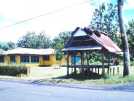 |
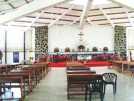 |
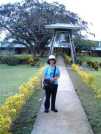 |
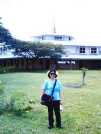 |
| Samoa |
Samoa |
Samoa |
Samoa |
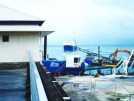 |
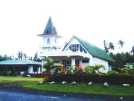 |
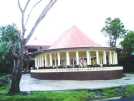 |
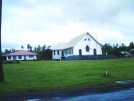 |
| Samoa |
Samoa |
Samoa |
Samoa |
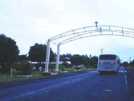 |
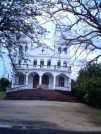 |
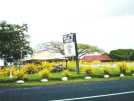 |
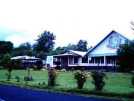 |
| Samoa |
Samoa |
Samoa |
Samoa |
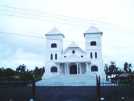 |
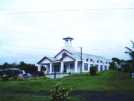 |
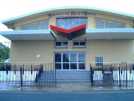 |
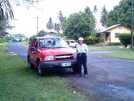 |
| Samoa |
Samoa |
Samoa |
Samoa |
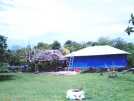 |
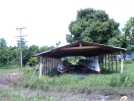 |
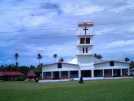 |
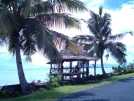 |
| Samoa |
Samoa |
Samoa |
Samoa |
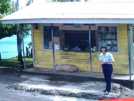 |
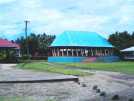 |
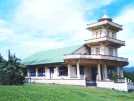 |
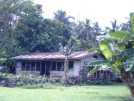 |
| Samoa |
Samoa |
Samoa |
Samoa |
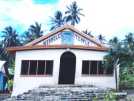 |
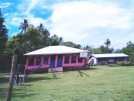 |
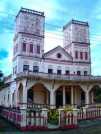 |
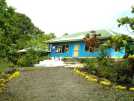 |
| Samoa |
Samoa |
Samoa |
Samoa |
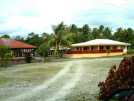 |
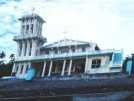 |
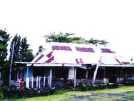 |
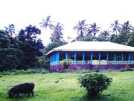 |
| Samoa |
Samoa |
Samoa |
Samoa |
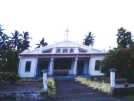 |
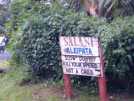 |
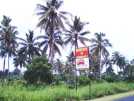 |
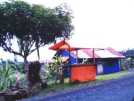 |
| Samoa |
Samoa |
Samoa |
Samoa |
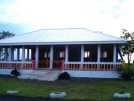 |
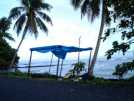 |
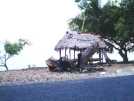 |
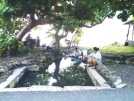 |
| Samoa |
Samoa |
Samoa |
Samoa |
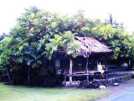 |
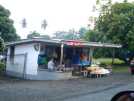 |
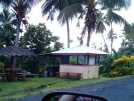 |
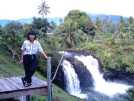 |
| Samoa |
Samoa |
Samoa |
Samoa |
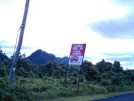 |
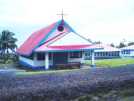 |
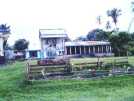 |
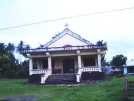 |
| Samoa |
Samoa |
Samoa |
Samoa |
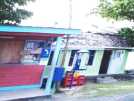 |
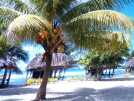 |
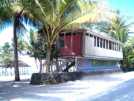 |
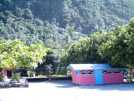 |
| Samoa |
Samoa |
Samoa |
Samoa |
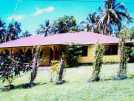 |
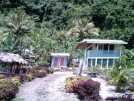 |
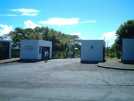 |
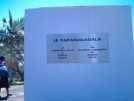 |
| Samoa |
Samoa |
Samoa |
Samoa |
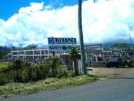 |
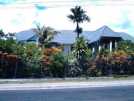 |
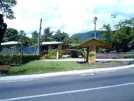 |
 |
| Samoa |
Samoa |
Samoa |
Samoa |
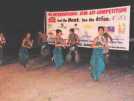 |
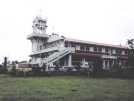 |
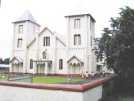 |
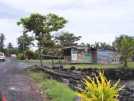 |
| Samoa |
Samoa |
Samoa |
Samoa |
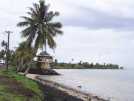 |
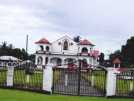 |
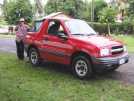 |
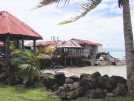 |
| Samoa |
Samoa |
Samoa |
Samoa |
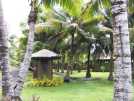 |
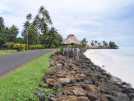 |
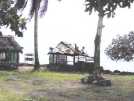 |
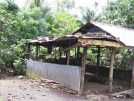 |
| Samoa |
Samoa |
Samoa |
Samoa |
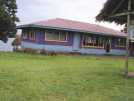 |
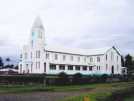 |
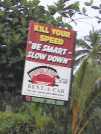 |
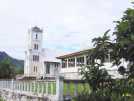 |
| Samoa |
Samoa |
Samoa |
Samoa |
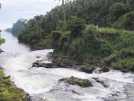 |
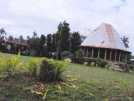 |
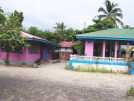 |
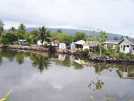 |
| Samoa |
Samoa |
Samoa |
Samoa |
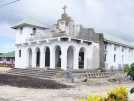 |
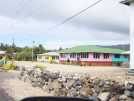 |
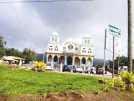 |
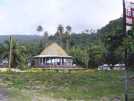 |
| Samoa |
Samoa |
Samoa |
Samoa |
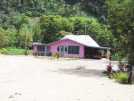 |
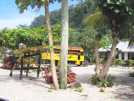 |
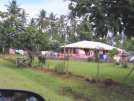 |
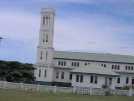 |
| Samoa |
Samoa |
Samoa |
Samoa |
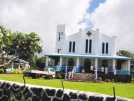 |
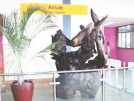 |
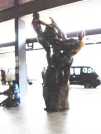 |
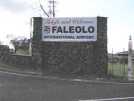 |
| Samoa |
Samoa |
Samoa |
Samoa |

List of photo
pages in my Samoa 2005 series.
Samoa (aka Western Samoa)
Apia
Samoa
Samoa
buses
Savaii
v
American Samoa (aka Pago
Pago)
American
Samoa
American Samoa buses
Fagatogo
Pago Pago

Site
Index
Back to Top
Photos Index
Thanks for coming, I hope you
have enjoyed it, will recommend
it to your friends, and will come
back later to see my site developing
and expanding.
I'm trying to make my pages
enjoyable and trouble free for everyone,
please let me know of any mistakes
or trouble with links, so I can
fix any problem as soon as possible.
These pages are best viewed with
monitor resolution set at
800x600 and kept simple on purpose
so everyone can enjoy them
across all media and platforms.
Thank you.
Webmaster

|